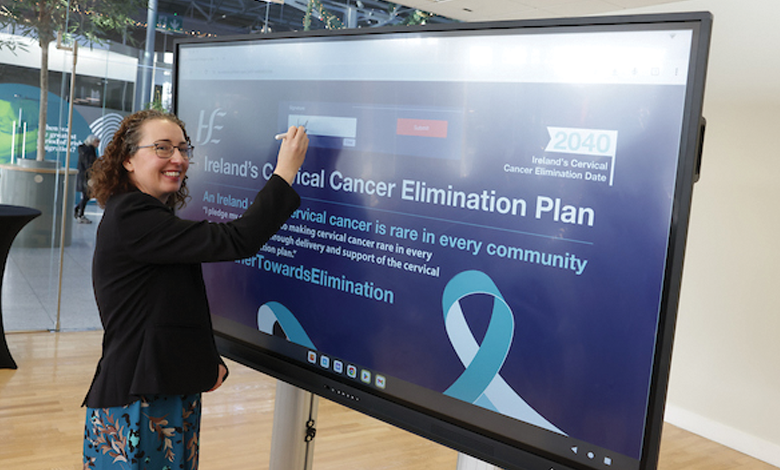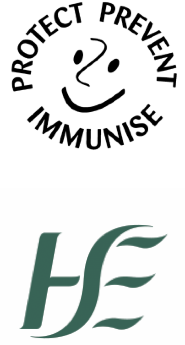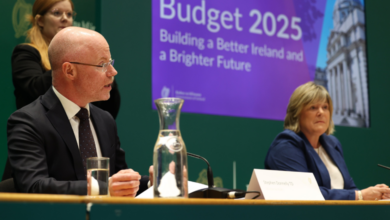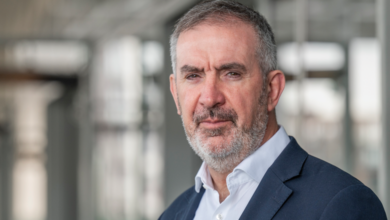Achieving equity and excellence: The National Immunisation Office Strategic Plan 2024-2027

As Director of the National Immunisation Office (NIO) and a consultant in public health medicine, I am delighted to introduce our Strategic Plan 2024-2027, writes Lucy Jessop.
This plan reflects our unwavering commitment to ensuring that everyone in Ireland has the opportunity to benefit from immunisation, one of the most powerful and cost-effective public health tools available.
Immunisation not only saves lives but transforms communities, protecting individuals across all stages of life from vaccine preventable diseases. Our vision is simple but bold: to see Ireland as a nation where every individual, regardless of their background or circumstances, is protected from vaccine preventable diseases through high-quality, equitable, and person-centred immunisation programmes.
Building on lessons learned
The past few years have been both challenging and informative for immunisation efforts globally and here in Ireland. The Covid-19 pandemic put the importance of vaccines in sharp focus. We witnessed incredible achievements in vaccine uptake, strengthened collaborations across the health system, and the resilience of communities working together. Yet, alongside these successes, other challenges have emerged.
We have seen a concerning decline in routine childhood vaccination rates, a pattern echoed across the world. Emerging threats like Mpox, and global challenges such as population displacement due to conflict have placed additional pressures on public health services. As the pandemic taught us, we cannot afford to be complacent. We must learn from experience, adapt, and strengthen our immunisation systems for the future.
Our strategic priorities
The Strategic Plan 2024-2027 is built around six core objectives, each designed to address critical needs while preparing us for future challenges:
- Childhood immunisations: Achieving 95 per cent uptake of childhood vaccines is a top priority. This is more than a statistic, it is about protecting children, families, and communities from diseases we know how to prevent. We will work closely with general practitioners (GPs), public health nurses (PHNs), and other healthcare providers to reach underserved communities, ensuring that every child has access to life-saving vaccines.
- School immunisations: Schools are vital settings for ensuring equitable vaccine delivery. We aim to meet WHO targets for vaccines like HPV, a cornerstone of the global effort to eliminate cervical cancer and extend the reach of flu vaccines to all primary school children.
- Adult immunisations: Protecting vulnerable groups, such as older adults, pregnant women, and healthcare workers, is critical. Increasing uptake of influenza vaccines in all eligible groups to 75 per cent and exploring tailored programmes for higher-risk populations, such as gay, bisexual, and other men who have sex with men (gbMSM), will be key areas of focus.
• Covid-19 vaccination integration: While Covid-19 may no longer be classified as a public health emergency, it remains a significant concern. We will integrate Covid-19 vaccination into routine programmes, ensuring that boosters are available to those who need them. - Emerging threats and resilience: The pandemic underscored the need for robust systems to respond to outbreaks and unexpected public health crises. Developing scalable vaccination processes and strengthening community trust in vaccines will help us prepare for the future.
- Data and technology: Accurate, timely data is the backbone of effective public health programmes. Our plan includes the development of a National Immunisation Information System (NIIS), which will provide real-time insights into vaccine coverage, identify gaps, and help us ensure no one is left behind.
Equity at the core of our mission
One of the guiding principles of this strategy is equity. We know that certain groups whether due to socioeconomic barriers, geographic location, or other challenges are less likely to access vaccines. Addressing these disparities is not just a moral imperative but a practical one. A population is only as protected as its most vulnerable members.
We are committed to working with communities to understand their specific needs, breaking down barriers, and tailoring our programmes to ensure inclusivity. By partnering with organisations like the HSE National Social Inclusion Office (NSIO), Public Health departments, and community representatives, we can deliver immunisation programmes that truly reflect the diversity of our population.
Collaboration and communication
None of this can be achieved alone. Our success depends on strong, meaningful partnerships with healthcare providers, public health professionals, the education sector, and most importantly, the communities we serve.
Trust is the foundation of any public health intervention, and clear, accessible communication is essential. We will continue to invest in innovative campaigns that not only share facts but also address concerns, tackle misinformation, and build confidence in vaccines.
A call to action
The journey ahead is ambitious, but I firmly believe that together we can achieve it. By focusing on collaboration, equity, and innovation, the NIO will work to ensure that every person in Ireland has the opportunity to live free from the burden of vaccine-preventable diseases.
I am incredibly proud of the multidisciplinary team at the NIO and the dedication they bring to their work every day. With the support of our partners and the public, I am confident we can deliver on these objectives and make Ireland a leader in immunisation excellence.
Let us move forward together, with determination and a shared commitment to equity and health for all.
You can read the National Immunisation Office Strategic Plan 2024-2027 here:
W: www.immunisation.ie
X: @hseimm
Instagram: @hseimm
YouTube: National Immunisation Office






